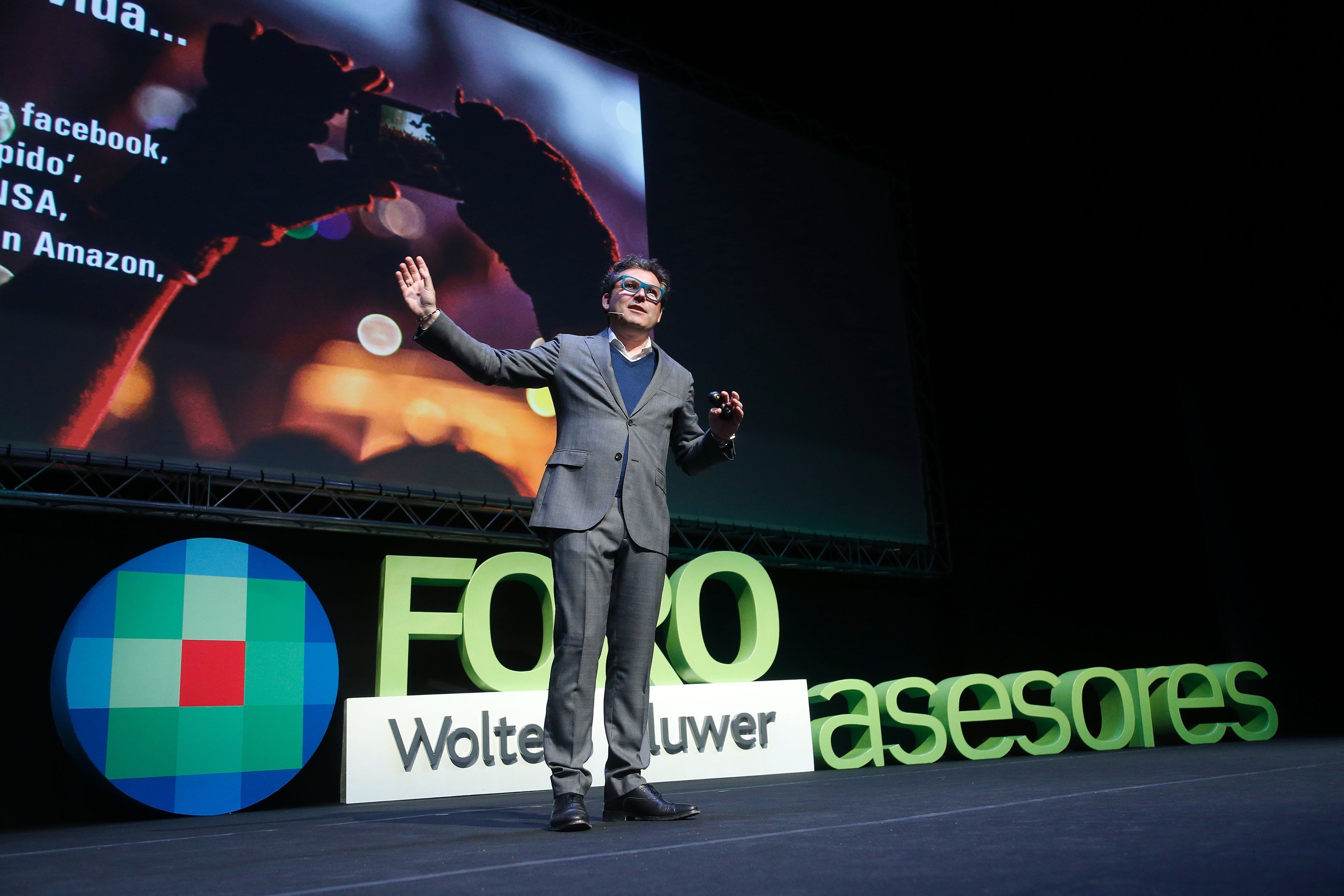
"There are two options: experience the technological revolution or not. When the wind blows hard, things take flight like kites, and fly high. This wind is the difficulty." This is not from a play, it is the conclusion of a speech by the consultant MarcVidal (@marcvidal) on digital transformation during the 20th Fòrum Asessors Wolters Kluwer in Barcelona. The grand cinematic music and the image of a kite projected on the screen are props for Vidal's almost epic talk on how technology is affecting us today and, especially, how it will affect us in the near future.
Immediate, close, urgent... the speed with which the changes are arriving is dizzying, says Vidal. "We come from a technical Internet (1993) linked to those controlling it; then came the business Internet (2001), the social Internet (2008) and later the automatic Internet (2013) where processes are produced that resend and edit themselves. And the Internet Of Things will arrive in 2018, when all objects will be connected in the high frequency knowledge," predicts the man who is also an entrepreneur.
He has seen some things, like the time he was sat on the terrace of a hotel in Barcelona, and a drone –"that did not have permission to fly in that airspace," he points out- brought him the corkscrew he needed to open a bottle of wine on the table. He has also been in one of the six driverless cars in circulation, with government authorisation, around the streets of London. "We should be careful with the exceptional nature of our evolution as a species," he warns with a certain tone of paternalism as, during the talk, he makes a list with example images of how life is not what it was thanks to technology.
Examples of technological change
From the nurse walking along a corridor in the in-patients' department who does not know that there is no need to see the next patient on the list because there is a robot using Big Data that knows the next thing the patient will need, to hotels without staff because there are robots working there, to robot-machines that select information that is breaking news, providing competition to under-fire journalists. "In the future there will be fewer intermediaries, many large companies are the largest in the sector despite the fact that they do not own the products that have made them so large," he says.
CNBC video on the pilot project of a Californian hotel that uses robots.
Vidal warns that "many occupations that exist today will disappear. Only essential processes will be executed, like in Tokyo where the first driverless taxis have begun to circulate," he says by way of example. And there is no need to look abroad, because according to Marc Vidal, here in next to no time fridges will stop breaking "because they will have integrated software that will automatically update," he says. The end of programmed obsolescence, perhaps?
"It is all about change... Kodak was once the point of reference for photography and now it is Instagram," he concludes while epic music can be heard in the background... as if the end of an era was about to take place. It is the end of a cycle we need to be prepared for, which means that "whatever your age, you will not retire technologically, creatively. Everything is taking place within a digital framework and the litmus test is the nature of our actions."